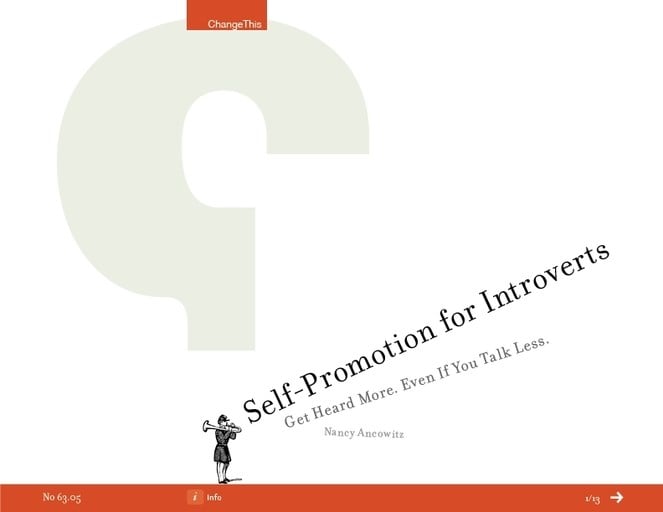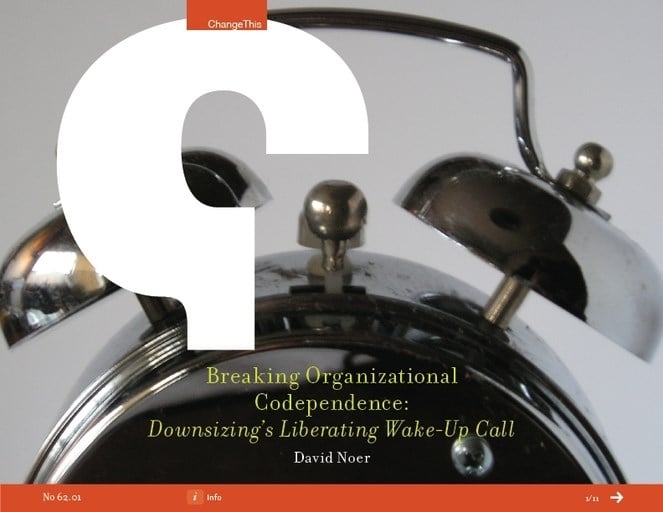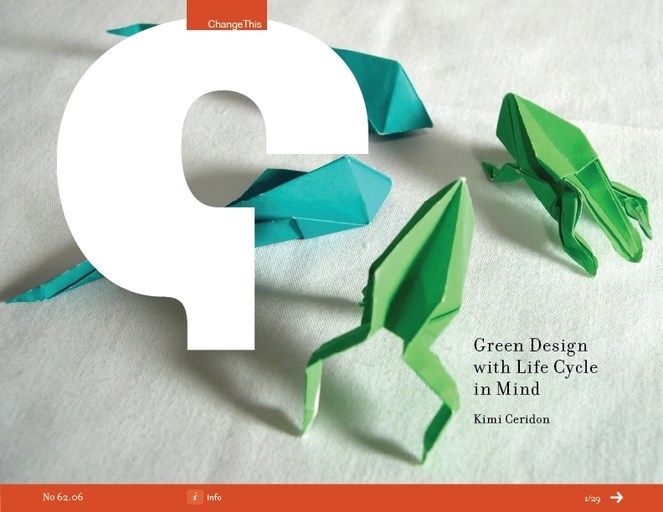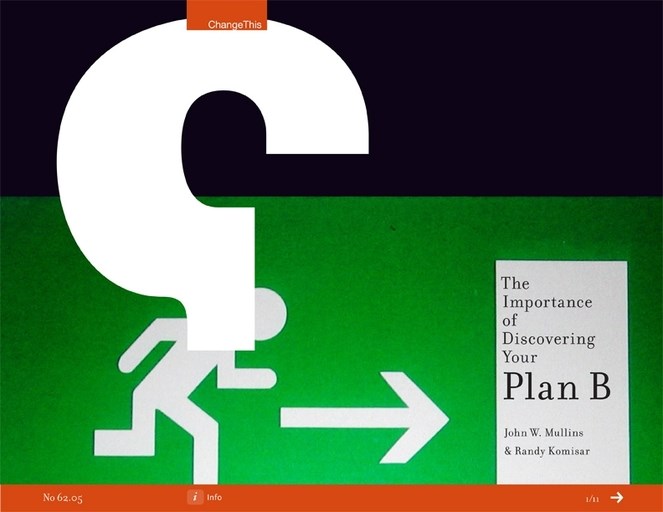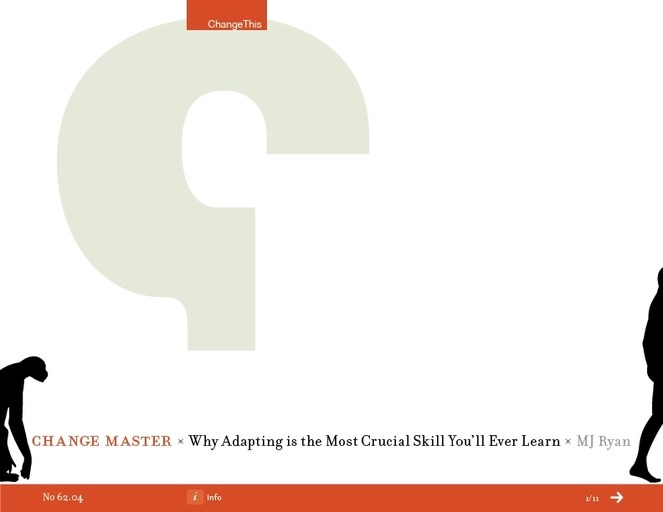ChangeThis RSS
"Introverts. The world needs us, can't live without us, and often doesn't quite get us. However, we persist, mostly behind the scenes, quietly contributing to society—writing, creating, designing, researching, solving problems, and digging for treasures ancient and new. Are you one of us?
If you're more of a Warren Buffett than a Donald Trump, and more of a Greta Garbo than a Madonna, you've come to the right place. It's time for you to stop hiding from the spotlight. Time to get recognized and compensated for your gifts.
Rather than buying in to the common misconceptions about introverts, you'll apply your quiet strengths to raise your visibility in a way that feels right for you. And guess what? You don't have to brag. Not even remotely. You can promote yourself authentically without the 'ick' factor."
Continue reading
"I'm told there is an ancient Chinese curse that translates into 'May you live in interesting times.'
That it is a curse certainly rings true as we experience today's global pandemic of downsizing.
Layoff victims and survivors alike react to this new reality with a toxic stew of debilitating emotions
such as anger, fear, anxiety and depression—what I call layoff survivor sickness. We can change
that though. We can reframe the death toll of the old paradigm into a wake-up call that will help
us create an exciting world of work that is more autonomous, personally relevant, and more in
congruence with our unique gifts.
We first need to understand the nature of the change and the insidious power of organizational
codependency. Then we need the courage to break its stifling grip on our human spirit and creativity.
Part of our 'interesting times' involves living through the most fundamental change in the psychological
contract that has connected employee to employer since the industrial revolution. Like it or
not—and initially, most of us find a lot not to like—in this new paradigm people are viewed as short
term costs to be reduced or eliminated, as opposed to assets to be nurtured and developed over
a career. Despite our cultural conditioning, we need the courage to face this fact and reconceptualize
our identity."
Continue reading
"It is not impossible to integrate sustainability into early stages of design. Cradle-to-grave environmental impact analysis methods are rarely used as a metric during product development. In early stages of a project, companies measure feasibility according to money, performance and time metrics. Sustainability is commonly measured at a design cycle's end on finished products when design features cannot be easily modified for sustainability measures. It is ineffective to apply new design metrics to finished products. Evaluating the 'greenness' of products is typically done to market the 'greenest' product in a line. This does not address the need to create sustainable products at project onset; thus, products remain 'un-green' and unsustainable.
It is time for new feasibility metric — Green Design with Life Cycle in Mind. Green design thinking must be accessible and applicable to product development through a set of tools designed for early stages of product development."
Continue reading
"If the founders of Google, Starbucks, or PayPal had stuck to their original business plans, we'd likely never have heard of them. Instead, they made radical changes to their initial models, became household names, and delivered huge returns for their founders and investors. How did they get from their Plan A to a business model that worked? Why did they succeed when most new ventures crash and burn?
Every aspiring entrepreneur, whether they desire to start a new company or create something new within an existing company, has a Plan A—and virtually all of these individuals believe that their Plan A will work. They can probably even imagine how they'll look on the cover of Fortune or Inc. magazine. Unfortunately, they are usually wrong. But what separates the ultimate successes from the rest is what they do when their first plan fails to catch on. Do they lick their wounds, get back on their feet, and morph their newly found insights into great businesses or do they doggedly stick to their original plan?"
Continue reading
"In a very real way, what is being asked of us now is no more or less than to become consciously aligned with what life has always required on this planet. In 1956, the father of stress research, Hans Selye wrote in his seminal work, The Stress of Life, 'Life is largely a process of adaptation to the circumstances in which we exist. A perennial give and take has been going on between living matter and its inanimate surroundings, between one living being and another, ever since the dawn of life in the prehistoric oceans. The secret of health and happiness lies in successful adjustment to the ever-changing conditions on this globe; the penalties for failure in this great process of adaptation are disease and unhappiness.'
In order to not merely to survive, but to thrive during the greatest period of transformation humans have ever experienced, we are all being called on to stretch mentally, emotionally, and spiritually into the future. It's my hope that this manifesto offers you both comfort and practical support as you take on this challenge and become a Master of Change."
Continue reading

